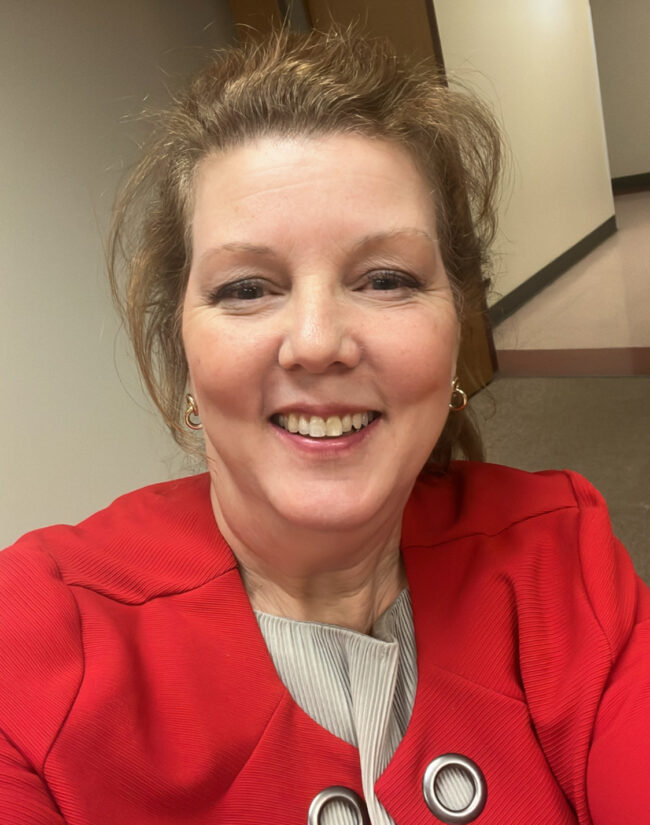Each new student will be provided with a faculty advisor whose responsibility is to advise students about program requirements and mentor you into your profession. Once admitted, students are provided with appropriate first semester course recommendations. We encourage new students to contact your advisor or respective Program Director with any specific advising questions.
Upon reviewing the course recommendations for your program, you next step is to Register for Classes by term (you will need your myCHC credentials to register for classes).
Fall
- HSMG 570: Human Diversity
- HSMG 540: Legal and Ethical Issues
Spring
- HSMG 510: Organizational Leadership
- HSMG 550: Public Policy
Summer
- HSMG 520: Principles of Human Resources
- HSMG 560: Principles of Finance
Curriculum
Core Courses
HSMG 510: Organization Management in Human Services
Credits: 3
This course provides a solid foundation of management principles and the skills needed to direct and manage human service organizations. Various management theories and styles will be examined. Competencies will be identified and skills assessment projects will provide opportunities to apply these competencies to realistic work situations.
HSMG 520: Principles and Concepts in Human Resources
Credits: 3
This course examines the key concepts of human resource administration, including workforce planning, performance measurement and appraisal, recruitment selection and retention, compensation administration, training and development, and employee relations. Critical issues in human resource policy development will be addressed, including the Americans with Disabilities Act (ADA), Family Medical Leave Act (FMLA), and diversity. Students will learn the key components critical to an effective HR plan from an evaluation of current best practices.
HSMG 530: Leadership Development in Group Relations
Credits: 3
This course examines group process theory, research, and literature in relation to the supervisory function in contemporary human service work environments. Its primary objective is to assist supervisory personnel in developing techniques and individual capacities in group process supervision and leadership skills. Procedures and techniques in both individual and group relationships and dynamics are studied. Class sessions present opportunities to apply concepts under study.
HSMG 540: Legal and Ethical Issues in Human Services
Credits: 3
This course provides an overview of the law related to human services and introduces the student to codes of professional ethics in the helping professions. Students will learn legal research methods and appellate case analysis. Ethical decision-making will be practiced using real and hypothetical issues and dilemmas related to client rights and needs and agency policies.
HSMG 550: Public Policy
Credits: 3
This course has been designed to introduce students to the ethical, analytical, conceptual, and political aspects of public policy, the structure of policy design, and the content and impact of major policies. Students will examine the major public policy issues facing federal, state, and local governments and will analyze the processes by which social policies are formed and implemented. Emphasis will be placed on contemporary social issues and client systems and the politicization of the human services. Theoretical perspectives and contemporary social policy research will be applied to the study of public policy to assist students in policy analysis, evaluation, and advocacy efforts.
HSMG 560: Principles of Finance
Credits: 3
This course provides an overview of financial management for the non-accounting professional, with emphasis on appreciation of the role of financial factors in planning and decision making in human services agencies. Financial management concepts and techniques include programs as units of analysis for non-profit organizations, financial statements, basic accounting, financial analysis ratios, performance measures, budgeting, cost analysis, forecasting, third-party reimbursement for services, fee schedule construction, risk management, and auditing.
HSMG 570: Human Diversity in Human Services
Credits: 3
This course explores possibilities and challenges inherent in engaging human diversity in human services settings, with attention to the impact of structural inequalities based on race/ethnicity, religion, sex/gender, sexual orientation, age, abilities/ disabilities, socio-economic status, and other cultural markers. The course will provide opportunities for students to appreciate diverse cultural traditions, especially cultures with which course participants identify and cultures of vulnerable populations who have histories of oppression. Opportunities will be provided for students to understand apparently personal problems as public issues that indicate needs for social change.
HSMG 580: Assessment and Evaluation
Credits: 3
Students develop both theoretical and practical skills in research assessment and evaluation necessary for successful leadership in human service programs and agencies. Human service programs and agencies operate in an increasingly competitive environment seeking to protect existing funds and develop new funding resources, generate service expansion and provide a quality work environment to retain quality employees. To make complex policy decisions, which maintain program/agency viability and develop a competitive edge, the administrator must be well informed. As a result, the ability to assess and evaluate research is a necessary and critical skill. The objective of this course is to provide students with an overview of such assessment and evaluation skills.
HSMG 598: Professional Seminar
Credits: 3
The professional seminar is an opportunity to organize and integrate all aspects of the degree program in a culminating experience in preparation for the requirements of HSMG 599-Professional Project. Human service theories and concepts will be applied to practical situations. Opportunities will be provided for practical-based research skill development. An overview of current issues and future trends in human service administration will prepare professionals to deal effectively with future challenges. Prerequisite: Completion of 24 credits or permission of program coordinator.
HSMG 599: Professional Project
Credits: 3
Students are required to complete a pre-approved, original project that focuses on a specific problem within a human service setting or local community. The special project involves identifying and investigating a problem or concern, completing an extensive literature review, addressing relevant policy issues, and identifying “best practices” and other strategies and interventions that may be applicable. Because of the unique features of each project, students meet individually with the instructor throughout the session. Prerequisite: HSMG 598
Electives: Compilation of Three Courses
HSMG 515: Community Development
Credits: 3
Integrating and networking of human services into community agendas will be the focus of this course. Human service professionals will learn how to make the public aware of available services through board participation, support groups, promotional campaigns, fund-raising efforts, and the writing of announcements, press releases and newsletters. Public policy and administration and community development theory will be linked with practice through readings, guest lectures, and field experiences. Students will learn methods for promoting positive community partnerships and building multi-sector support in an increasingly competitive environment.
HSMG 525: Criminal Justice Systems
Credits: 3
With an interdisciplinary approach, human service professionals will gain an understanding of crime, criminal law, law enforcement, courts, corrections, and juvenile justice from a systems perspective. Human service professionals will learn how to understand the criminal justice system from the vantage point of different professional roles and responsibilities. Case studies will be used to demonstrate how the criminal justice system addresses the special needs of persons with mental illnesses, addictions, developmental disabilities, and abuse issues.
HSMG 528: Working with Adults
Credits: 3
As our aging population increases, more attention has been given to adult development and quality of life issues. This course will provide an overview of physical, cognitive and psychosocial development in adulthood. Students will become familiar with a variety of personal, family, health, work, and relationship concerns that confront middle aged and older adults. Current controversies and treatment approaches will be reviewed and analyzed. Students will be encouraged to reflect on personal experiences as they relate to working with adults.
HSMG 535: Promoting Healthy Lifestyle Practices
Credits: 3
This course provides an examination of the relationship between health, attitudes and behavior in an effort to establish programs that promote healthy lifestyle practices. Students will analyze various studies that deal with exercise, nutrition, weight management, stress, drug and alcohol use, and disease prevention. Individual and group projects will address the design and implementation of health promotion and wellness initiatives.
HSMG 545: Drug and Alcohol Addiction
Credits: 3
This course has been designed to examine critical issues and current evidence related to drug and alcohol addiction. A strength-based approach will include a study of current theories and models of recovery, abuse and addictions; the role of culture; and the challenges of drug and alcohol issues for individuals, families, communities, and organizations. Diverse client systems and the roles and services provided by therapists, counselors, support groups, and employee assistance programs will be considered from a health and human services administrative and organizational perspective.
HSMG 555: Eldercare Management
Credits: 3
To serve the increased number of older persons effectively, human service professionals need to be knowledgeable about the existing continuum of home and community services. Common health, legal, financial, and housing issues facing older adults and their caregivers will be analyzed. Students will have the opportunity to review and analyze a variety of available aging resources. A case study approach will enable human service professionals to identify concerns and develop appropriate policies and programs to address the needs of a diverse aging population.
HSMG 565: Family Services
Credits: 3
This course offers an introduction to the principles and practices used in agencies and organizations that provide specialized services in marriage and family therapy. An analysis of decision-making processes, conflict resolution, problem-solving, and relationship building will assist students in developing the skills needed to work with individuals, groups, and community organizations. A systems approach will be utilized to prepare students to apply human service methods to social planning, advocacy, and case management activities. Specific family concerns such as problems with children, substance abuse, dysfunctional relationships, and divorce will be addressed.
HSMG 574: Administration of Higher Education
Credits: 3
The purpose of this course is to provide a comprehensive introduction to higher education. This course will examine historical and philosophical influences and organizational structures that have guided the evolution of higher education and related professions. Additionally, this course will examine adolescent and adult development theory in the context of higher education in a multicultural world. Students will examine the roles of professionals in higher education with consideration given to diversity of institutional type, student populations, characteristics of today’s college students and contemporary issues in the field.
HSMG 575: End of Life Care
Credits: 3
This course will examine the historical and theoretical backdrop of death & dying and the advent of end-of-life care. It will highlight cross-cultural perspectives of death and bereavement, examine current end-of-life concepts, explore challenges faced in a changing world with a rapidly growing older population, and prepare students for practice with dying, death, and bereavement. Designed to enhance students’ comfort with expression of personal loss as well as their capability in addressing and supporting the dying and grieving, this course offers important training for those who are called to help.
HSMG 581: Special Topics in Human Services
Credits: 3
Topics will vary and will be noted on the course syllabus.
HSMG 585: Volunteer Administration
Credits: 3
Current projections suggest that human service agencies will engage one volunteer for every compensated employee within the next several years, due to competition for vital human resources and increased demand for community sensitive organizations. This course has been designed to prepare human service professionals for the challenges of managing an uncompensated work force within complex organizational structures. Special consideration also will be given to students who will have responsibility for coordinating corporate/employee volunteer service activities within public and non-profit organizations. Students will examine all aspects of program management and will gain an understanding of the essential components of productive volunteer service activities that address authentic organizational and community needs and support core business functions.
HSMG 595: Working with Children and Youth
Credits: 3
Using a systems perspective, this course provides an overview of the physical, cognitive, and psychosocial development of children and adolescents and the common psychological and social problems experienced during these developmental stages. Dynamics of family, school, and peer interactions, as well as current theories, research, and treatment practices will be examined.


